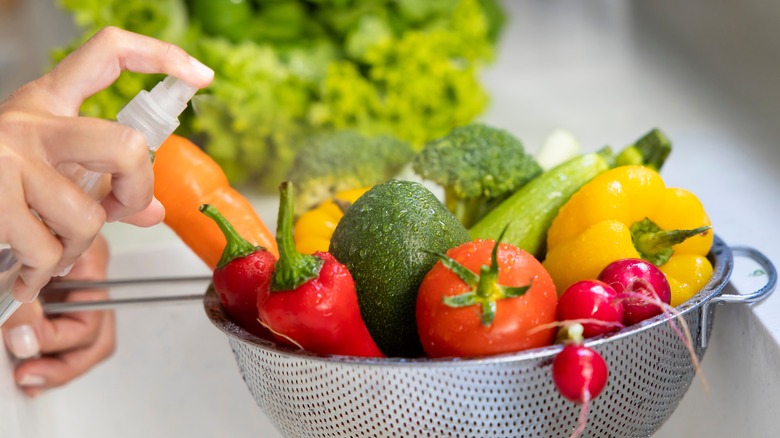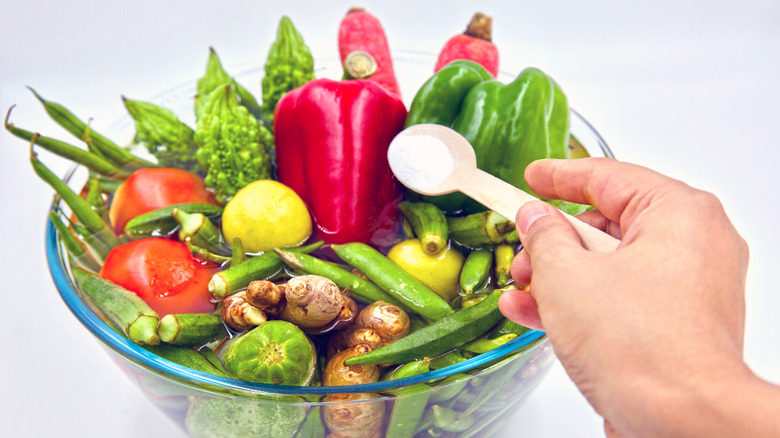What's In Veggie Wash Spray, And Is It Actually Good For Your Produce?
Produce wash is a kitchen staple for those who rely on it to clean their fresh fruits and vegetables, particularly those consumed raw (like in salads). Generally, produce wash is made with two main ingredients: one which removes dirt and pesticides, and one that can kill (most) micro-organisms. Fans of the product view veggie wash as an important line of defense against food-borne pathogens.
Even though America's food supply chain may be one of the safest in the world, we've also seen food recalls involving everything from peanut butter to sauces and salad kits. And although recalls can happen to just about any food item, data analyzed by the Water Quality and Health Council shows that fruits and vegetables have some of the highest recall rates between 1985 and 2017 and that nearly all involved some disease-causing bacteria like E. coli, Salmonella, and Listeria.
Exposure to these pathogens can happen at any point in the supply chain, from the time produce is picked to the time it is stored and prepared for consumption. It's no surprise then, so many are turning to cleaning agents like vegetable wash to ensure that the fruits and vegetables they consume at home are being carefully cleaned and sanitized before they are consumed.
Why produce wash may not do what you think it does
While the Food and Drug Administration encourages shoppers to protect themselves from pathogens, the FDA is not generally keen on the use of detergents, veggie washes, or soaps to clean off our produce. As the agency points out, since the surface of all produce is porous, this means our fruit and vegetables can absorb whatever you use to wash it with, including detergents and veggie washes. The FDA further adds that because it's not known what kind of residues commercial produce washes contain, the agency doesn't actually know if these chemicals are as safe as they claim to be.
Even if the use of potentially harmful chemicals are not a concern, veggie washes come with price considerations too. Unfortunately, tests conducted by Tasting Table on the efficacy of commercial veggie washes found they work about as well as homemade solutions made with distilled water, lemon juice, and vinegar.
At the end of the day, common-sense ideas from buying produce free from bruises and blemishes, keeping your fruits and veg separate from any raw meats, and washing them thoroughly under running water and with a produce brush, will do more to protect you than veggie washes are expected to do.

